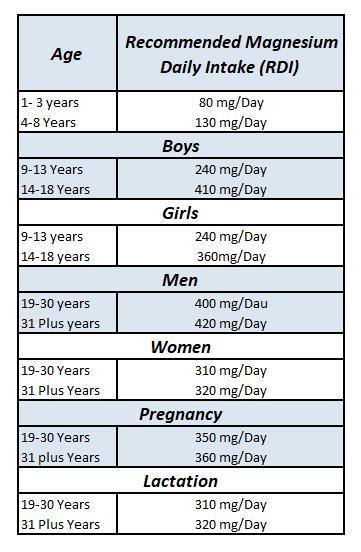
The Ultimate Guide to Magnesium and Good Health is a must-read.
Of all the minerals your body needs, Magnesium is a must-have, more than you may realize.
According to Wikipedia

Did you know?
Magnesium plays over 300 biochemical functions within the body and helps other minerals and nutrients such as Vitamin D and Calcium to function in their specific roles.
Legal Issues to note:
Affiliate Disclaimer
This article contains some affiliate links which means should you click a link and you purchase a product as a result, I may receive a small commission at no added cost to you.
“As an Amazon Associate, I earn from qualifying purchases.”
Also, Note:
All information contained on this website, including information related to medical matters, health issues, treatments, and products, serves only for informational purposes.
It is not intended to replace the advice of your own doctor or specialist.
The information on this website is not intended to diagnose health problems or prescribe medications.
With health & safety, it is always important to discuss any changes you make in consultation with your prescribed doctor, especially if you may have other underlining conditions.
Please read my medical disclaimer at the bottom
What is Magnesium?
Magnesium is a mineral that plays a major role to help regulate (via certain chemical reactions) building proteins, strengthen bones along with helping to regulate blood sugar levels, blood pressure, and muscle, nerve, and brain function.
This vital mineral helps to maintain a steady heartbeat and enables the muscles to relax and contract when needed.
What does magnesium do in the body?
Around 25 g of Magnesium is present within the adult body and 50 – 60% of that is found in the bones the rest is found in the muscles, blood, and other cells.
Yet the load it carries for other minerals and nutrients is incredible as it enables your body to function to full capacity.
For the body to maintain balance and stability (homeostasis), daily Magnesium levels are needed for the human body to cope, function, and survive.
Magnesium can be found naturally in plants and foods, but also can be manufactured, and added to medications, supplements, and in beverages.
A lack of adequate magnesium levels can cause the body to malfunction, creating further issues that may harm your health
Unfortunately, in today’s Western world, the increase in highly processed foods along with the popularity of many fast foods has created more harm than good.
Highly refined sugar and processed foods that are not that nutritional along with increased fats have had a major effect on the health of many people.
Just in the United States alone, more than 50% of Americans are Magnesium Deficient.
The worst part is many may not even know it unless they get tested for their magnesium levels.
Yet suffer from various conditions where low magnesium levels are concerned.
Magnesium and Its Role with Vitamin D and Calcium
We know that vitamins and minerals play an important role in the health and stability of our bodies.
Vitamin D and Calcium cannot function properly without the presence of magnesium.
When one is insufficient the others will suffer and so will the body.
All three need to be working at optimum levels for the proper function to the body as a whole.
This is why maintaining a daily balance is vital.
So let’s look at why this is so.
Calcium
Vitamin D and Calcium play an important role in the maintenance of our bones and teeth.
Yet more is involved with what they do.
Around 99% of Calcium is located in the bones to keep them strong and healthy the other odd 1% is found in the blood and other areas within the body.
Calcium helps the muscles to contract and helps with blood clotting along nerve and heartbeat function.
When the body is low in Calcium it will send signals for more calcium to be taken away from the bones to the needed areas.
Now that may seem fine for a short while however when you become Calcium deficient over a longer period which is not hard to do these days then you may have a problem.
The more calcium taken away from your bones the less strength they have which can easily cause your bones to be weak and brittle and it may not take much for a break to happen.
A worse case is developing the risk of osteoporosis due to Calcium Deficiency.
Vitamin D
Vitamin D helps to regulate Calcium not only with bone growth but other areas such as muscle contraction, blood clotting, regulating heartbeat, and nerve function.
The role of Calcium is to help contract the muscles while vitamin D helps to relax the muscles to bring that balance.
However, for this to work Vitamin D needs to be active first it doesn’t happen automatically.
Excess calcium in the blood can create blood clotting which in turn could lead to stroke and or heart attacks.
Too much calcium within the muscles forces the muscles to contract more and without Vitamin D the muscles cannot relax.
The role of Calcium is to help contract the muscles while vitamin D helps to relax the muscles to bring that balance.
Here is the problem:
When Vitamin D is unconverted it cannot regulate the excess levels calcium will produce.
So for Vitamin D to work it first needs to be converted and become active.
Then it can help regulate the function of Calcium within the body.
This is where magnesium comes into play with Vitamin D and Calcium.
Issues such:
Serious muscle and stomach cramps, nausea, vomiting, and worst case scenario plaque formation within the arteries which can become deadly.
Vitamin D becomes the controller of calcium to ensure just the right amount is used and if both vitamin D and Calcium are in balance then bone strength will remain.
The rest of the body will function normally as a result.
So you can see the importance of the two However now comes the big boy which many people don’t see its role with Vitamin D and Calcium
Magnesium
Now you read how important vitamin D is for Calcium and its control to help regulate Calcium function but there is an issue that needs to be sorted out first.
Magnesium Assists Vitamin D and Calcium in Functioning Correctly
Magnesium is needed to activate the function of Vitamin D.
This is done within the liver and kidneys via enzymes that convert Vitamin D to its active form known as calcitriol.
However, to do so, the enzymes rely on adequate amounts of magnesium for Vitamin D to be converted and become active and absorbed into the body.
Without adequate magnesium, Vitamin D and Calcium can’t function properly but too much of either and without the control of Magnesium can easily affect health and even create serious issues down the track some with deadly results.
Magnesium Deficiencies, Signs, Symptoms, and Causes
Magnesium deficiency is a condition in which the amount of magnesium in the blood is lower than normal.
The medical name of this condition is hypomagnesemia.
At times it may be difficult to determine if one has a magnesium deficiency as many signs may seem to relate to other health conditions along with other factors.
So if in doubt it is always best to see your doctor first and they may choose to do a blood test and check out your magnesium levels.
Magnesium deficiencies can have far-reaching impacts on health and well-being.
As a result of insufficient intake of Magnesium, various deficiencies can occur.
They can be a small nuisance to life-threatening issues.
Below are some signs and early symptoms of magnesium deficiency to take note of.
The earlier you pick it up the sooner to take a trip to your doctor and get yourself tested.
Please note:
Although some of these signs or symptoms seem general, however, when symptoms occur regularly (rather than a once-off) usually indicates an underlying health issue that needs to be checked with your doctor ASAP.
Early Warning Signs and Symptoms of Magnesium Deficiency to look out for.
Early Signs of Being Magnesium Deficient:
- Eating a low-magnesium diet
- Loss of appetite
- Stomach Cramps
- Nausea and vomiting
- Diarrhea
- Fatigue and weakness
Warning Signs of Possible Magnesium Deficiency

- Shaking
- Pins and needles ( this is serious get your heart checked as well)
- Muscle spasms
- Sleepiness or poor-quality sleep
- Mood Swings
- Muscle Cramps
- Abnormal heart rhythms
- Migraines
- Stomach cramps and pain
- Menstrual cycles for women both before and after the monthly cycle
- High blood pressure
What Factors Can Create Magnesium Deficiency?
The above mentions signs and symptoms which can be your early warning signs, however, there may be some factors that can create Magnesium Deficiencies further.
Now if one were to eat the right foods most people should not experience any magnesium deficiency as many people’s habits that are not the best certain factors may create further deficiencies that can become dangerous.
What Causes Magnesium Deficiency?
Magnesium deficiency in healthy people is rare but it can be caused by other factors such as:
- Poor eating habits (Eating highly processed foods, Fast foods, high fat or high carb diets. Diets with low magnesium levels. Especially in elderly people)
- Malnutrition
- Vomiting or diarrhea
- Some medicines can cause low magnesium levels if taken for long periods
- Alcoholism or excess alcohol consumption
- Excessive sweating
- Chronic Diarrhea
- Pregnancy (requires more magnesium during pregnancy) Refer to the chart below.
- Clogged arteries
- Diabetes (in particular, type 2 diabetes)
Results from Long Term Magnesium Deficiency
- Osteoporosis
- Bone density (Brittle bones, bone fractures even easy breaks in bones)
- Nerve and Brain function
- Muscle function (weakness or loss of muscle function)
- Digestive system
- Coronary heart Disease
- Hypertension
- Depression
7 Magnesium Benefits for Your Health
1) Migraines
Most often, people with low Magnesium levels tend to suffer from migraines more than others though not always a fact for everyone.
A 2021 study from Pubmed.gov has shown that magnesium, in particular, one form called Magnesium oxide is effective in helping prevent migraine attacks including menstrual-related migraines provided the correct doses are taken.
Magnesium oxide can be taken in tablet form and has been stated and known to be better than some other migraine-type medications that may create severe side effects for some.
Eating Food rich in magnesium – Food that contains a high amount of magnesium can help to reduce migraine issues such as vomiting, nausea, and even sensitivity to light and sudden noises.

2) Type 2 Diabetes
Magnesium is an essential mineral and nutrient for both the brain and body.
Those of us (I include myself) know that it is important to maintain our blood sugar levels along with cutting down on added sugars such as sweets and certain food and drinks Etc.: (bummer).
This includes not just those with Type 2 Diabetes but also Type 1 diabetes as well as Gestational Diabetes usually found for the first time during pregnancy.
Please note if you do not have Diabetes that doesn’t mean you are safe and many people around the world have some form of diabetes issues and do not know it.
Tip for those unaware if they have diabetes or not
If you have any or most of the following symptoms please see your local doctor or medical practitioner and get yourself tested for diabetes as soon as possible, your health and in some cases, your life can be saved.
11 Signs to Look Out For Possible Diabetes
- Urinate (pee) a lot, often at night
- Bruises easily and slow healing on sores
- Feeling more thirsty than normal regularly
- Lose weight without trying
- Are very hungry
- Have blurry vision
- Have numb or tingling hands or feet
- Feel very tired
- Have very dry skin
- Have more infections than usual
- Showing unusual mood changes or feeling irritable
Along with eating many unhealthy foods rich in sugar, there are far too many overweight people around the world who may suffer from diabetes in one form shape or another and don’t realize it.
So it may be a good idea to get tested rather than find out the hard way where some like Type 1 need constant insulin injections to survive.
You can read more on Magnesium Benefits for Women
3) Cardiovascular Health
Magnesium plays an important role in cardiovascular function along with improved Heart Health.
Without it, your heart will not be able to function normally.
Part of the reason is that uncontrolled Calcium can build up in blood vessel walls, particularly in arteries near the heart.
Calcium tends to constrict the vessels which can impede blood flow, creating high blood pressure and also may lead to clogged arteries.
Magnesium helps to control blood pressure and keep Calcium in check but also keeps the blood vessels flexible for it to constrict and dilate as required.
When proper magnesium levels are maintained this will help to lower high blood pressure and lower the risk of clogged arteries that can lead to heart attacks and/or strokes.
Magnesium in the form of supplements may help to decrease your total cholesterol while improving the blood lipid for those with high cholesterol.
Should Magnesium levels become too low the calcium may not only constrict the blood vessels but also may overstimulate the heart to cause irregular or rapid heartbeat.
If in doubt see your doctor for a checkup if you notice such issues.
4) Muscle Function
Magnesium acts as a calcium blocker to help the muscles relax.
When too much calcium is present and not enough magnesium the buildup of Calcium can cause inflammation and sore muscles along with muscle cramps and spasms, especially after any strenuous activities or hard workouts.
Proper amounts of magnesium help support muscles and nerve functioning which allows for greater energy production.
Think of Magnesium as a muscle relaxant.
Magnesium is generally recommended to help treat muscle cramps in general but is also important in the recovery process from strenuous exercise or activity.
This is why Energy type drinks (not all) but those containing magnesium can help to restore what was lost during any physical activity along with keeping your fluid intake along the way.
Taking magnesium helps for quicker muscle recovery as it acts as a relaxant.
Vitamin D and Magnesium have a good relationship, in that magnesium helps Vitamin D to activate and help strengthen muscle weakness and pain along with helping regulate Calcium..
Low magnesium levels take away the ability of vitamin D to work at it best as such can result in weakness of the muscle to the point muscle mass may decline.
5) Bones
We now know that around 50-60% percent of Magnesium is found in the bones and the importance of Calcium for bone growth.
However, Calcium can easily go bonkers and get out of control which is why Magnesium is there to regulate and contain the overproduction of calcium for the bones and teeth as well.
Too much calcium can harden bones while Magnesium provides the balance to keep them flexible enough to avoid bones from becoming brittle or shattered bones.
It has been found that women with osteoporosis have less bone magnesium in the body.
So Calcium can help bone growth yet too much can make them harder while Magnesium helps to keep a balance and makes bones stronger while keeping flex within them.
6) Brain
It is known that of all the energy produced by the body 20% of that energy is used within the Brain.
Magnesium is essential for the brain as it works on normal functioning and regulates the various neurotransmitters (chemical messengers) to aid the cells of the brain to communicate with each other along with the rest of the body.
Glutamate and gamma-aminobutyric acid also known as BABA
These two major neurotransmitters especially need magnesium to be at their top levels.
Glutamate
Glutamate needs to be in check and under tight control, again magnesium comes to the rescue.
An excess of Glutamate can lead to overexcitement, nerve cell damage, and even death often known as glutamate excitotoxicity.
This Excitotoxicity has been connected to memory imbalance along with other various neurodegenerative conditions commonly known as Multiple Sclerosis, Alzheimer’s, Parkinson’s and Huntington’s Disease, and even Epilepsy
GABA
Low levels of Baba receptors within the brain place a halt to your brain activity.
To the point, you feel your brain is turned on and no matter what you do it becomes difficult to be able to relax.
You are always on the go and can’t find that switch to turn it off with constant thoughts racing through your mind.
This can lead to much stress and anxiety, depression, and feeling overwhelmed which may cause excessive worry and even depression.
Some may find that Low levels of GABA can lead to irritable bowel syndrome causing diarrhea, constipation, and worse panic attacks for no known reason.
Maintaining correct levels of Magnesium daily will help to increase both your Glutamate and GABA levels to function properly.
The brain and your gastrointestinal tract share direct communication with each other.
When your gut is overproductive, and not in balance the brain follows, in turn, creates the bowel issues mentioned.
Taking more care with your gut with probiotics and prebiotics can assist the brain to take that stress off and in turn, other issues above can either be reduced gradually or have none at all.
How Does Magnesium Affect the GABA Levels in Our Body?
This is where Magnesium comes to the rescue again by helping increase the GABA receptors which help the brain activity to function properly.
Better brain activity alleviates mood disorders, calms the mind along with other issues, and for the gut, lessens the impact of your irritable bowel issue. Doing so creates a positive cycle for the better.
7) Restful Sleep
When the Brain and body are in sync with appropriate levels of Magnesium the Brain and body actions can function normally.
As a result of less stress, brain activity with proper levels of GABA and Glutamate helps people tend to fall asleep faster and also get better sleep.
As you already have read, Magnesium is a powerful mineral and is also involved with the production of melatonin.
Melatonin is the hormone needed to help control your sleep and wake cycle.
However, one issue can occur that affects your melatonin levels and that is too much light entering the eyes can have a drastic effect on your ability to sleep properly.
This is why going on the laptop, checking out your mobile, and even watching TV in the bedroom late at night is best avoided due to excess unnatural light when you should be sleeping.
Many people who have such issues, especially at the start are using sleep masks to help them along with the melatonin levels to work effectively.
This can be a great habit to start off with and be able to help your melatonin levels to work effectively.
Plus the sleep masks help shut out external light and are especially beneficial for night shift workers due to the excess light in the daytime.
How much magnesium do I need?
The recommended amounts of magnesium one needs for their body are dependent on various factors such as age, and gender along with those who may be pregnant or lactating.
The chart below will show a general guide for the recommended Magnesium Daily Intake (RDI) according to age and gender.

What foods are high in magnesium?
Fortunately, Magnesium is present in abundance in many types of foods.
You can also find Magnesium dietary supplements, along with some medicines such as antacids and laxatives.
There are many Magnesium Rich Foods with Nuts and Leafy Green Vegetables as the best along with whole grains, legumes, and some fatty fish,
Magnesium can also be present in water such as mineral, bottled, and even tap water.
Of course, that may also be dependent on where you live and what suppliers include in their water.
So that may not be the best way but eating foods high in Magnesium would be your best option.
As you can see there is a wide variety of foods that will benefit you regardless of your taste or lifestyle when it comes to certain foods or issues.
Those who are allergic to nuts can find solace in eating more Green Leafy Vegetables, and Fish.
Those who are not prone to eating fish again have a selection of other choices that will benefit you to better health and increase your magnesium levels along the way.
The main part is to find the foods you like and enjoy while keeping up your daily magnesium intake for better health overall.
Magnesium Food Sources
People’s eating habits can vary with the amount of magnesium they are getting and most often magnesium levels may not be at the optimum levels due to certain eating habits these days.
Many people especially from the Western world tend to eat more processed foods and as a result, may not get enough magnesium in their diets.
So it is important to get your magnesium levels up with many varieties of foods high in magnesium.
Magnesium-Rich Food List
Most people get all the magnesium they need from food.
Note: Foods high in fiber are the best source of magnesium
Some good sources of magnesium include leafy green vegetables, legumes, nuts, seeds, and whole grains.
You can get magnesium from the following foods:
- pumpkin seeds
- chia seeds
- almonds
- spinach, boiled
- cashews
- peanuts
- soymilk
- oatmeal
- whole wheat
- avocado
- brown rice
- milk
Those who have a high-fat diet will find less magnesium absorbed from their food.
Here are my Top 10 Foods list high in Magnesium
Top Ten Vegetables High in Magnesium
- Spinach
- Kale
- Swiss Chard
- Broccoli
- Brussel Sprouts
- Parsley
- Peas
- Sweet Corn
- Potatoes
- Sweet Potatoes
Top Ten Fruits High in Magnesium
- Tamarinds
- Prickly Pears
- Passion Fruit
- Avocados
- Bananas
- Kiwifruit
- Papaya
- Jackfruit
- Guavas
- Raspberries
Top Ten Nuts and Seeds High in Magnesium
- Hemp seeds
- Dried Pumpkin Seeds
- Flax Seeds
- Brazil Nuts
- Sesame Seeds
- Chia Seeds
- Cashews (Raw)
- Almonds
- Hazelnuts
- Macadamia Nuts
Top Ten Fish High in Magnesium
- Atlantic Mackerel
- Oysters
- Bluefin Tuna
- Yellowfin Tuna
- Snapper
- Sardines
- Crab
- Abalone
- Trout
- Lobster
What are the benefits of taking magnesium supplements and is it safe?
An important note about taking any form of Magnesium supplements
Magnesium Supplements are meant as a means of support for certain conditions not a replacement for a healthy well-balanced diet!
Magnesium supplements may seem harmless at first and for some, they can be beneficial but also a danger to others.
Before considering taking any form of magnesium supplements consult with your doctor first, as certain medical conditions can become worse in using supplements.
Who Can Benefit From Taking Magnesium Supplements?
- Physically active people, those that sweat a lot. e.g. working at the gym, sportspeople, and Joggers, especially during warmer months.
- Note sweating a lot from physical activity is different from sweating profusely due to other health issues. Here supplements can also help
- Type 2 diabetes which is uncontrolled and excessive urination removes more magnesium from the body. (care needs to be taken here as too much magnesium can create serious issues) so see your doctor first.
- Drinking alcohol and more so excessive alcohol much Magnesium is lost and supplication may be required.
- Those with poor eating habits may need supplements to boost their levels until better and more balanced diets are met. This should only be short term as food should provide you with enough alone.
- Osteoporosis helps with enzyme products to allow Vitamin D to help regulate the calcium levels in the bones.
What are the disadvantages of taking magnesium supplements?
The majority of people should get enough magnesium from having a well-balanced diet of healthy foods that include Magnesium.
When getting high doses of magnesium from foods there is no real issue and the body can easily dispense it through the body’s waste system.
However, this is not the same with using supplements and for some, too much magnesium can become toxic.
Side Effects of Excess Magnesium Supplement Intake:
Certain medications may also contain magnesium which can increase your intake when using magnesium supplements and you can easily have too much and not know it.
Medications such as laxatives, and antacids, along with other medication for migraine, indigestion, and heartburn can easily contribute to excess magnesium intake.
The following are the general symptoms one may experience as a result of too much magnesium intake.
- Nausea
- Cramps
- Diarrhea
Generally, excess magnesium is passed through the body in Urine, however, those with Kidney issues can suffer greatly as a result of too much magnesium being held as the body struggles to release the excess.
Some other symptoms can occur over a long-term period that can be mild at first and continuous build-up can become severe to fatal for some:
Too high a dose and over a longer period may cause magnesium to become toxic.
- Being lethargic
- Excess Diarrhea
- Constant and regular stomach cramps
- Depression
- Muscle weakness
Serious Magnesium Toxicity Overload
- Irregular heartbeat
- Low Blood Pressure
- Urine retention
- Breathing difficulties
- Cardiac arrest/Stroke
Magnesium Supplement Toxicity. Who are at risk?
It is important to note that if you are taking medications such as laxatives, antacids, or even multivitamins with other forms of supplements can quickly build up to an excess.
Over a longer period, this can become dangerous and have that magnesium toxicity.
Before considering taking supplements look at your current diet and ensure you are getting your magnesium from natural sources from the foods listed above.
You may need to make certain lifestyle changes to improve your health this may include better sleep, and learning to relax to take out some stress from your life.
If in doubt, or are on any other forms of medications that contain magnesium always consult with your doctor first to assess your particular situation.
Your lifestyle is also a factor.
Taking magnesium supplements is meant as an aid not a replacement for natural foods.
Along with being aware of other medications, you may be taking which can easily build up to an excess.
I would love to hear your input on what foods have helped you maintain your magnesium and other vitamins and minerals.
Do you have a favorite food group that helps with all your nutritional needs?
Let me know in the comment section below.
It would be great to share this to your friends and family as their good health may be impacted as a result of magnesium deficiency.
Other FAQ’s
Who should avoid taking magnesium?
- Those suffering from diabetes, heart or kidney disease should avoid taking magnesium until seeing their doctor first.
Can You Take Magnesium Supplements Long-Term?
- For healthy people taking magnesium supplements containing magnesium should be fine of most healthy people however do not take more than the maximum dietary allowance which is around 400 mg or less.
Why is magnesium deficiency so common?
- Depleted soil conditions mean that plants become low in magnesium in turn animals fed such plants pass on a lower amount than normal.
- Chemical use in the water supply may be lower due to additions of fluoride and chlorine.
- High-processed foods and drinks such as sugar and caffeine may reduce the natural supply of magnesium in the body.
Is magnesium good for sleep?
- Magnesium plays an important role in your nervous system and can help you to calm and quiet down.
- Also with relieving anxiety and depression that can interfere with sleep patterns.
Why do some find difficulty in absorbing magnesium?
- Drinking too much alcohol, certain medications, digestive problems along with kidney issues can take its toll and reduce what magnesium you already have in your body.
- Poor eating habits which may be from current lifestyle
eating on the run. - Quick food fixes (fast foods), and poor appetite which may stem from other issues can all take their toll on the body not being either able or getting enough magnesium to function properly.
- When low magnesium levels are not looked at, over time this can weaken your bones leaving them to become brittle and weak.
- Create unnecessary headaches or migraines.
- Lower levels of Calcium and Vitamin D absorption create further issues with your blood vessels such as calcification of arteries which may lead to stroke and heart attack.
Conclusion
You see you might be eating well, however various other factors need to be taken into consideration with your current lifestyle.
Eating healthy doesn’t always mean you are healthy within.
It is always best to focus on eating foods that naturally contain magnesium from foods such as green leafy vegetables, nuts, fruits, and grains.
So have you rechecked the early signs of magnesium deficiency regardless of how healthy you feel you are eating?








This guide on magnesium and its impact on health is incredibly informative! I found it fascinating how magnesium contributes to so many vital functions, from supporting muscle health to reducing stress levels. I also appreciated the section on magnesium-rich foods and supplements. I’m curious, though—do you have any tips for ensuring optimal magnesium absorption, especially for those with dietary restrictions or health conditions that might interfere? Thank you for breaking down this complex topic so well!
Thank you, Hanna, for visiting my site much appreciated.
It is amazing just how important Magnesium helps and contributes to helping the body function in many ways.
As for your question of ensuring optimal magnesium absorption, it is always vital to seek the advice of a trained medical professional for their advice, on the optimal level as people may face different situations or certain issues that vary.
Thank you for your time, much appreciated and wishing you great health.
Andre.
The article on magnesium’s role in good health is informative, but I have a few questions. Could you expand on how magnesium deficiency impacts vitamin D and calcium absorption? Also, are there clear daily intake recommendations and tips for meeting them through diet alone? Regarding supplements, what should individuals consider, and are there risks with excessive intake?
Thank you for your comment appreciated. As for your questions, they have already been answered within the article along with other comments to others.
With health & safety, discussing any changes you make in consultation with your prescribed doctor is always important, especially if you may have other underlying conditions.
This also includes any recommended doses, be they for supplements or dietary food, as it depends on an individual’s condition and circumstance.
Wishing good health
Andre
This ultimate guide to magnesium and good health is an exceptional resource for anyone looking to better understand the profound impact this essential mineral has on our overall well-being! The comprehensive breakdown of magnesium’s role in everything from muscle relaxation to cardiovascular health and sleep is eye-opening. I appreciate how the guide not only highlights the importance of magnesium in activating Vitamin D and regulating calcium but also delves into the consequences of deficiencies and the potential health issues they can cause. The detailed lists of magnesium-rich foods make it easy to identify dietary sources, offering practical steps toward improving health naturally.
What sets this guide apart is its balanced approach to supplements, emphasizing their role as a complement to a healthy diet rather than a replacement. The section on who can benefit from supplementation, along with the cautionary advice for those at risk of magnesium toxicity, demonstrates a thoughtful and responsible perspective. The inclusion of practical tips for maintaining magnesium levels and recognizing deficiency symptoms ensures readers are equipped with actionable knowledge to improve their health. This guide is a must-read for anyone interested in taking proactive steps toward a healthier, more balanced lifestyle. Fantastic work!
Thank you for your assessment, Laura, Magnesium is I feel certainly unrated in terms of health and what it can do for Vitamins like D and C but more on how it can help improve health overall when one has that balance be it in supplements as the start followed by a balanced diet and nutrition.
Always seek professional help form a qualified Health practitioner should you need further advice.
Continue to take care of your health and enjoy the year ahead.
Andre
This is a very detailed and informative read on magnesium, and the importance of having enough magnesium in your diet. Is there a guide to the daily recommended amount of magnesium that one should be taking?
With the need for magnesium to help with the absorption and metabolism of calcium and also vitamin D, is it better to take a supplement with all three together? Or will eating enough magnesium in food be sufficient for this function? Thank you for clarifying.
Thank you for commenting on the above post most appreciated.
If you have a read of a previous comment where someone asked a similar question on taking supplements and the daily recommended dose. Also as everyone is different always consult a healthcare professional for individual assessment. Supplements can be beneficial at the start and once balanced you can matained the balance with a healthy food intake will be fine but as I said everyone is different according to their personal needs and healthh status.
Wishing you well
Andre
This is a fantastic and thorough guide on magnesium and its importance for good health! I love how you’ve explained the different types of magnesium and their specific benefits, such as supporting muscle function, bone health, and even promoting better sleep. From my own experience, incorporating magnesium supplements into my routine has made a noticeable difference in my energy levels and overall well-being. I appreciate how you’ve also highlighted magnesium-rich foods, which are an easy way to boost intake naturally.
One question I have is: How do you recommend adjusting magnesium intake based on specific health conditions, such as anxiety or muscle cramps? I’ve heard that magnesium can help with these issues, but I’d love to know more about how to tailor the dosage for those needs. Additionally, are there any potential side effects or interactions with other supplements or medications that people should be aware of when taking magnesium?
Overall, this post offers valuable and actionable information on the many benefits of magnesium. It’s clear that this mineral plays a key role in maintaining overall health, and your guide makes it easy to understand how to incorporate it into a wellness routine. Thanks for sharing this helpful and informative resource!
Thank you for visiting my site and especially this post on magnesium and good health much appreciated
Yes Magnesium has many wonderful properties to help in many areas as you have read. So I wanted to answer two of your questions separately
The first is about magnesium intake, here there are many uses, two of which you mentioned which are anxiety and muscle cramps.
Magnesium glycinate or magnesium citrate are often recommended because they’re easier for the body to absorb along with having a calming effect on the body.
Regardless of which issue, anxiety or muscle cramps it is best to start with a lower dose, like 200-400 mg daily, but always consult with a healthcare provider first, as some people may need certain adjustments depending on their specific needs.
As far as any potential side effects some of the some of the common side effects of magnesium supplements can include stomach upset and diarrhea.
This is why it is best to take magnesium with food to minimize these effects, but more importantly, as I mentioned in the other question always consult with your healthcare provider first before starting any new supplement more so if you’re on medication.
This would be the same with any other supplements outside of Magnesium.
Hope that answers your questions and thank you for that as well
Wishing you great health going forward.
Andre
Hi Andre,
I found this post on magnesium and good health really enlightening!
Are there specific forms of magnesium that are more effective or better absorbed by the body? Also, what are your thoughts on how magnesium supplementation compares to getting magnesium through diet alone?
I’ve been looking into ways to improve my overall health, and it’s fascinating to see how essential magnesium is for so many bodily functions.
Great article, and thank you for sharing such valuable information!
Ali
Hi Ali thank you for the comment and for visiting my site most appreciated.
Yes we normally hear about the importance of vitamins D, C, and other nutrients but not often do we realize how important other areas Magnesium plays in helping other nutrients function properly.
These are vital for both men and women.
As for magnesium supplementation, these can certainly help especially at the start or if your health professional feels supplements are needed to start to balance the body.
After that it is essential to maintain the balance through some form of a healthy diet when magnesium will benefit you on a regular basis.
Thank you once more Ali and feel free to check out the other posts that can benefit your health or other areas
In the meantime, take care of your health and be well
Andre
This article is a fantastic deep dive into the importance of magnesium for overall health! I love how you explain its role in regulating everything from blood pressure to muscle function, and the connection between magnesium, calcium, and vitamin D is eye-opening. The warning signs of magnesium deficiency are especially helpful for anyone looking to stay on top of their health. One thing I’m curious about: for someone looking to increase their magnesium intake, would you recommend focusing more on food sources or supplements? It would be great to hear your thoughts!
Thank you Bob for taking the time to read my content on Magnesium and Good health, which is vital for anyone men, women, and children
When I researched Magnesium, I knew it has much importance but didn’t realize how vital it was in helping and working alongside calcium and vitamin D that was an eye-opener for me.
We all need to heed the warning to our bodies and where necessary see a health professional for a proper assessment.
For me focusing on food sources would be best in my opinion but for some,,supplements made be needed at the start to give that added boost to normalize the body.
Thank you once more Bob appreciated.
I wish you great health and hope you enjoy all you do in life.
Andre